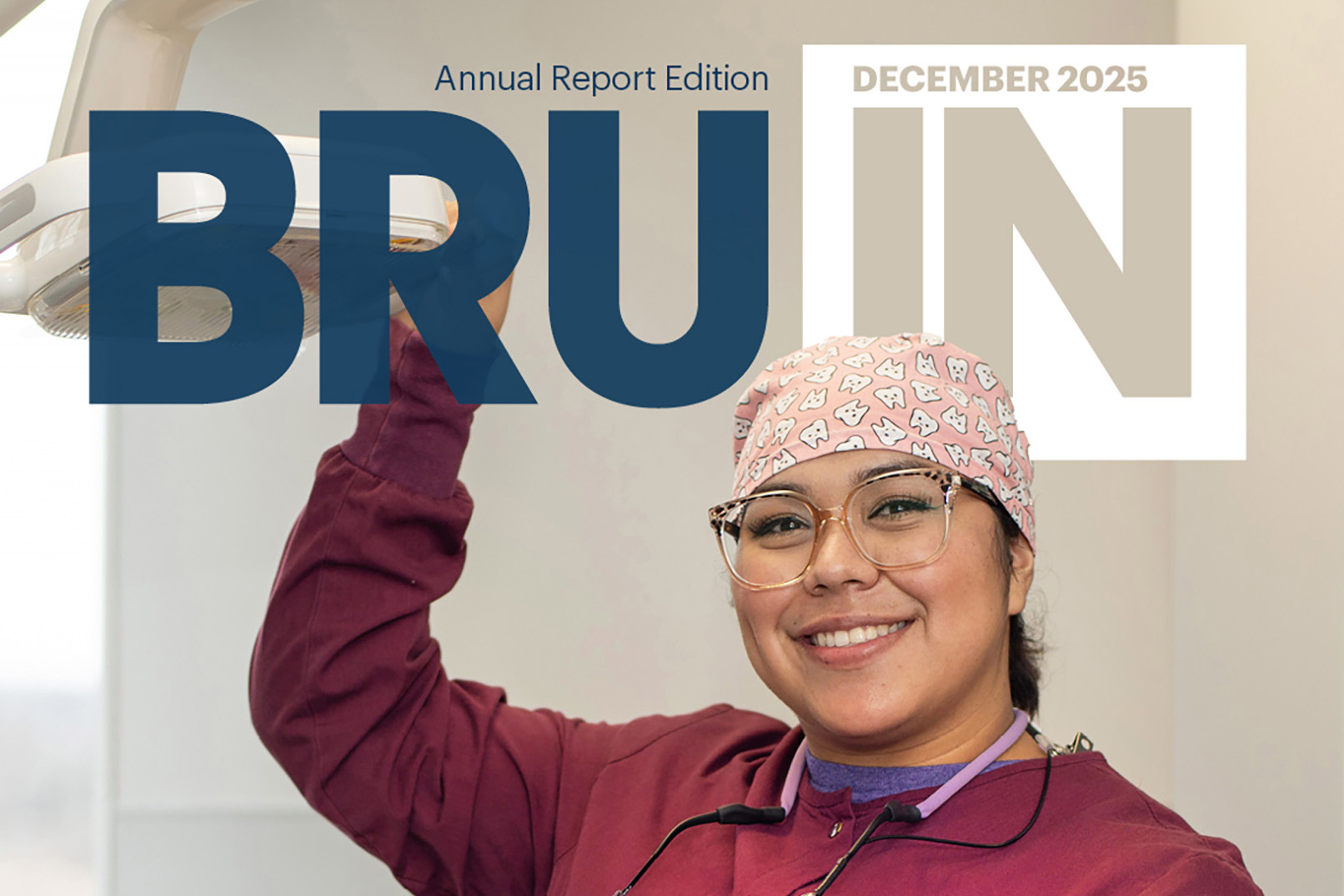Registration for the Spring 2019 semester is open now! For information about signing up for spring classes, visit www.kellogg.edu/registration. To apply to KCC online for free, visit www.kellogg.edu/step1.
Interested in studying business? Kellogg Community College is offering nearly two dozen classes in Business Administration (BUAD) or Business Entrepreneurship (BUEN)this spring.
Here’s a list of the business classes offered at KCC during the Spring 2019 semester, which begins Jan. 11. For a complete list of Spring 2019 semester classes offered at KCC, visit www.kellogg.edu and click on “Class Schedules” in the top menu to search for sections.
BUAD 101: Introduction to Business (3 Credits)
A survey course analyzing business organization and management in the areas of marketing, finance, human resources, electronic commerce and operations management. Emphasis is placed upon developing a vocabulary of business terminology and acquainting the student with careers and opportunities in business. Cases and current events related to business practices are utilized.
BUAD 115: Global Business (3 Credits)
This course consists of an overview of global business today. It is designed to provide the student with the basic concepts and theories pertaining to global business. Included are import and export strategies, global trade, global electronic commerce, economic and political trade issues, cultural aspects, developing and developed countries. The basic function of global business, including managing, marketing, financing, producing, electronic commerce and transporting will be discussed on a limited basis.
BUAD 132: Human Resources Management (3 Credits)
An analysis of the management of personnel from the viewpoint of the individual supervisor and the personnel department. Subject content will include corrective discipline, grievance procedure, collective bargaining, job analysis, interviewing and placement techniques, performance evaluation, psychological testing of employees, and supervisory development and motivation. These subjects are presented through individual and group involvement techniques, such as case studies, discussions of current problems, and role playing.
BUAD 200A: Cooperative Education (3 Credits)
This cooperative education experience is for students in the Accounting, Business Administration and Business Management programs. The course is designed to provide each candidate with the necessary analytical, problem-solving, decision-making, supervisory and/or communication skills to be successful in a business environment. Students will practice the accounting, administrative, and/or supervisory duties in the existing marketplace. Students will meet as a class one hour per week. Topics in the workplace (including career selection and marketing, investing and retirement planning, professionalism and ethical practices) will be the focus of the weekly co-op series.
BUAD 200B: Cooperative Education (3 Credits)
This course is a continuation of the experiences of BUAD 200A. This is a coordinated work experience for students taking accounting or business related programs. To be enrolled in this course, students must be in an accounting or business related position providing new career-related experiences in the workplace. Students will meet as a class one hour per week.
BUAD 200C: Cooperative Education (3 Credits)
This course is a continuation of the experiences of BUAD 200A and BUAD 200B. This is a coordinated work experience for students taking accounting or business related programs. To be enrolled in this course, students must be in an accounting or business related position providing new career-related experiences in the workplace. Students will meet as a class one hour per week.
BUAD 201: Business Law (3 Credits)
General overview of the U.S. legal system covering laws, court procedure and selected current significant legal rulings. An analysis and application (through the case study approach) of the concepts and rules of law with particular emphasis on the Uniform Commercial Code. Contracts, torts, commercial papers and electronic commerce will be covered.
BUAD 202: Business Law (3 Credits)
Secured transactions, business organizations, partnerships, corporations, electronic commerce, bankruptcy, trusts, bailments, estates, wills, property, leases and mortgages and insurance will be covered. The case method will be employed, and selected current significant legal rulings will be discussed.
BUAD 212: Personal Finance (3 Credits)
This course discusses the techniques that can be applied to personal financial management. Key components of this course include concepts and strategies associated with money management, taxation, savings and retirement planning, consumer credit and financing, insurance (auto, home, life and liability) and investment strategies.
BUAD 213: Business Statistics (3 Credits)
A basic principles course emphasizing statistical techniques, particularly their application to business and economics. The study of descriptive statistics leads to an understanding of measures of dispersion and central tendency. With this background, the student progresses to probability and sampling theory leading to inferential statistics. Various tests of significance are studied including chi-square, analysis of variance, and the binomial distribution using real-world examples. Finally, the relationship between data is studied using regression and correlation analyses. The use of the computer will be introduced throughout the course.
BUAD 251: Principles of Marketing (3 Credits)
The functions of the marketing mix are analyzed as to how they interact with each other, with other business functions through electronic commerce, and with several components of the business environment. Understanding of these marketing functions is developed through a study of a variety of applied marketing problems, exercises, Internet searches and business case histories.
BUAD 274: Organizational Behavior (3 Credits)
Analysis of human behavior in organizational settings with the purpose of determining appropriate leadership styles. Emphasis on resolving human dilemmas in the organization. There will be case studies, critical incidents and role playing. Simulation models are augmented with lecture and cases to maximize student involvement.
BUEN 100: Introduction to Entrepreneurship (1 Credit)
This course is designed to provide an introduction to the process of turning an idea into a successful start-up business. A primary focus is for the student to explore the potential of being a successful entrepreneur. The course introduces the student to the processes for creating a potentially successful business plan. The student will use entrepreneurial discovery processes, assess opportunities for venture creation, and develop presentation skills to convince others of the potential success to implement the business entity.
BUEN 101: Entrepreneurship – Developing a Business Plan (2 Credits)
This course is a continuation of BUEN 100 and designed to assist the student in the processes for creating a potentially successful business plan, utilizing business plan software. Each student is expected to identify a feasible idea suited to their needs and interests for a business. The student will apply a design and development process to the idea, produce a solid business plan for implementation, and identify and establish an action plan for acquiring the resources (including funding) needed to implement their business plan.
BUEN 106: The Marketing/Sales Plan (2 Credits)
This course is designed to provide you with the skills and knowledge necessary to develop, maintain, and evaluate a marketing plan using simulation software. In addition, techniques are discussed to establish relationships with clients, determine their needs, and motivate customers to purchase products or services.
BUEN 107: Entrepreneurial Finance (3 Credits)
This course will provide a practical application of basic financial management principles that apply to entrepreneurs. Specifically, this will be accomplished by providing the tools necessary to maintain proper financial records to make budgetary decisions related to cash and financing needs, pricing of products or services, the payment of taxes and loans, and determining profitability to help you become a successful entrepreneur. This course is required in the Entrepreneurship Program and is available only to students enrolled in the program.
BUEN 108: Legal Issues and Ethics (1 Credit)
This course introduces future entrepreneurs to the legal requirements for forming and operating a business. Students will follow the progression of a start-up business and anticipate its legal concerns through the stages of growth up to an initial public offering. It presents the substantive and practical legal guidance necessary to excel in business. The course also includes a review of the ethical issues that small business owners frequently confront.
BUEN 109: Basic Economic Concepts (3 Credits)
This course is an introduction to the economic way of thinking and its applications to decision making in the business world. An emphasis is placed on understanding and applying economic concepts to small businesses. In addition, the impact of a global economy is discussed as it relates to economic concepts and its impact on small businesses. This course is a required course in the Entrepreneurship Program and is available only to students enrolled in the program.
BUEN 110: Risk Management for Entrepreneurs
This course provides a basic review of the nature of risk management and how to protect a business from preventable and insurable losses. Topics covered include liability and property insurance, data record security, protection of company assets from loss or theft, and establishing a safe working environment through the proactive use of risk management techniques.
For More Information
Click here for information about KCC’s Business Management associate degree and certificate programs. Click here for information about KCC’s Entrepreneurship Certificate Program.
The first Spring 2019 classes start Jan. 11, and the semester ends May 6. For information about signing up for spring classes, visit www.kellogg.edu/registration. For more information about Business and Information Technology studies at KCC, visit www.kellogg.edu/business-information-technology.














